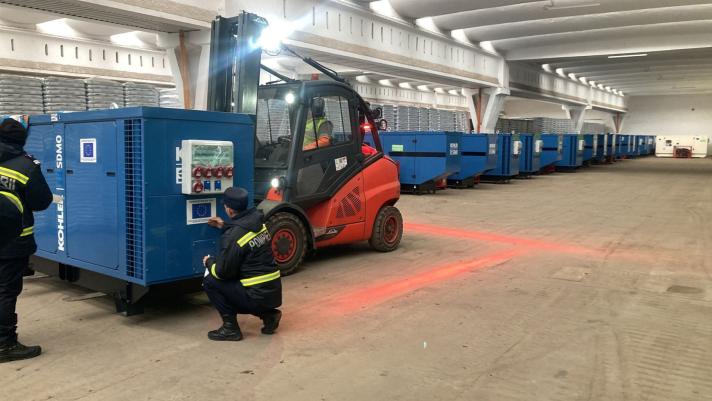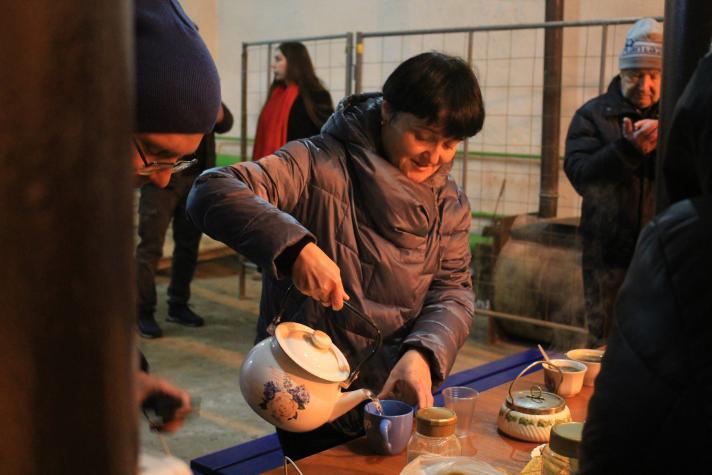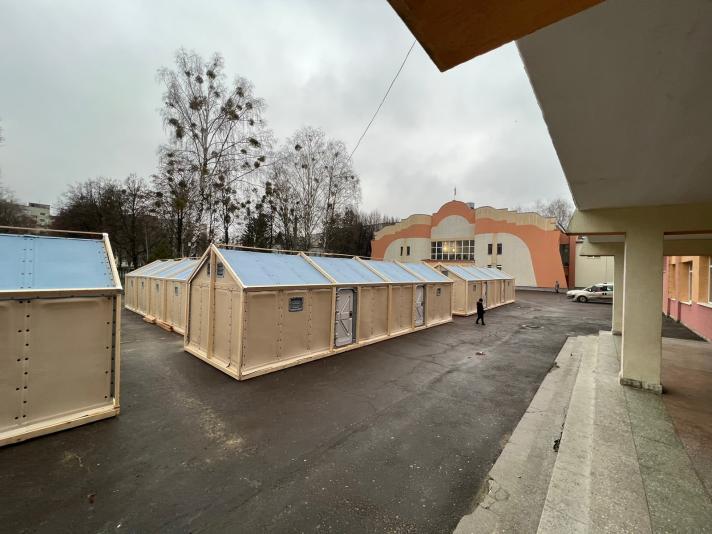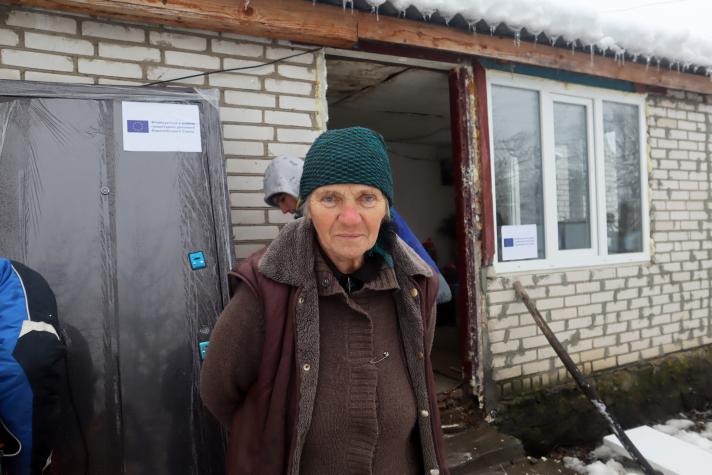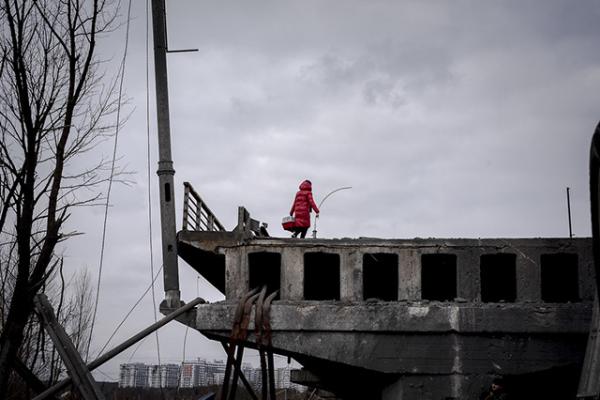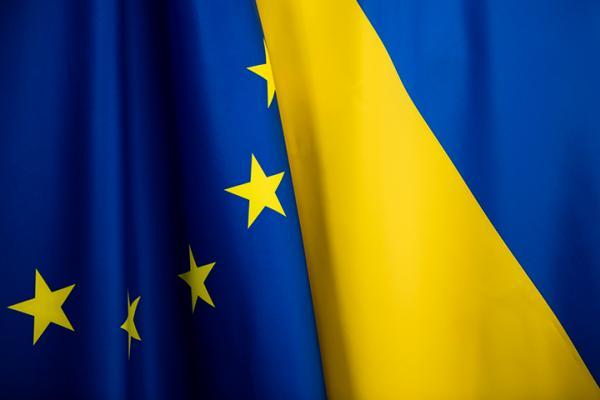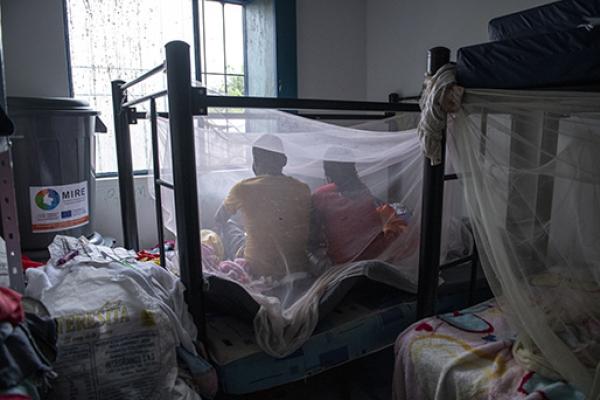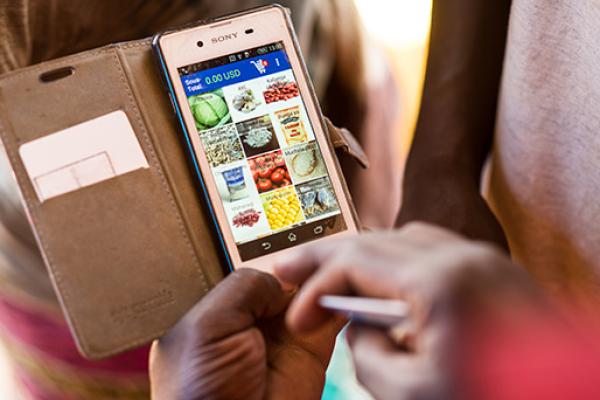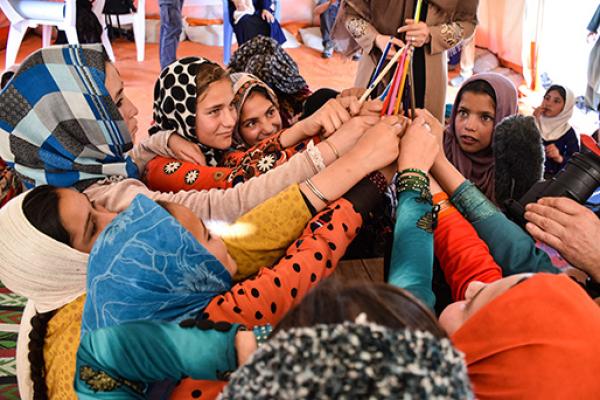War, power cuts, freezing temperatures: Ukrainians are going through one of the most arduous winters in recent history after Russian attacks have left millions without reliable access to electricity and heating.
The EU, its Members States and humanitarian partners are using all available instruments to help Ukrainians through the cold season.
Here are 4 ways the EU’s Civil Protection and Humanitarian Aid department is supporting them:
1. Delivering power generators
Through the EU Civil Protection Mechanism, European countries have mobilised more than 850 generators.
They range from models to power households to generators that keep public services like hospitals, water pumps and sewerage systems running across towns during power cuts.
Germany and Poland are currently developing a rescEU capacity of emergency energy supplies, which will be progressively available.
rescEU is an extra layer of citizen protection integrated into the EU Civil Protection Mechanism, which strengthens European preparedness for disasters.
The first batch of 94 rescEU generators has been deployed to Ukraine, with more to come.
In addition to delivering vital energy equipment to Ukraine via the EU Civil Protection Mechanism, many ongoing EU-funded projects have been repurposed to provide much-needed emergency equipment.
Various EU humanitarian partners have supported Ukrainian authorities with the distribution of generators – they have delivered more than 900 to cover energy-related needs in preparation for winter.
For example, with our support, the International Organization for Migration (IOM) has donated 18 generators to the municipality of Kharkiv.
“One of the generators is used to provide heating for 28 multistorey residential buildings, a school, a kindergarten, and a clinic,” says Ievhen Hryschenko, Technical Director of the Kharkiv Heating Networks.
2. Mobilising temporary shelters
In addition, we have granted €62.3 million under rescEU to Sweden and Romania, to purchase:
- emergency short-term temporary shelter units
- key items such as beds, covers and heaters, to host people in need in Member States and Ukraine.
To date, the EU has mobilised 3,000 Relief Housing Units and 4,500 beds from the rescEU shelter reserve hosted by Sweden.
Additionally, thanks to our funding, Romania purchased 3,500 tents, 500 containers with beds which now constitute the rescEU shelter reserve in Romania.
3. Repairing damaged houses, schools, and shelters
EU-funded humanitarian projects also repair houses, schools and shelters damaged by the Russian attacks, so they are ready to brave the freezing temperatures.
74-year-old Yulia was born and lived all her life in the village of Fedorivka in the Kyiv Region. The Russian forces took the village after the start of the full-scale invasion.
A shell fell nearby and badly damaged the doors, windows, fence, and roof of her house. IOM’s mobile teams installed new windows and a metal door in her home.
4. Cash assistance
Cash transfers are another way the EU helps war-affected civilians repair their houses to help them stay warm this winter.
Oleg and Marina spent years building their dream house. During the Russian occupation of their village Vedyka Dymerka, many buildings were destroyed or damaged, including Oleg and Marina’s home.
“We are actively rebuilding the house to have a place to live. With the money we received, we bought windows,” said Oleg referring to cash support he received last summer from our partner ACTED.
Story by Begum Iman, Information and Communication Assistant, EU Civil Protection and Humanitarian Aid Operations.
Publication date: 17/01/2023

